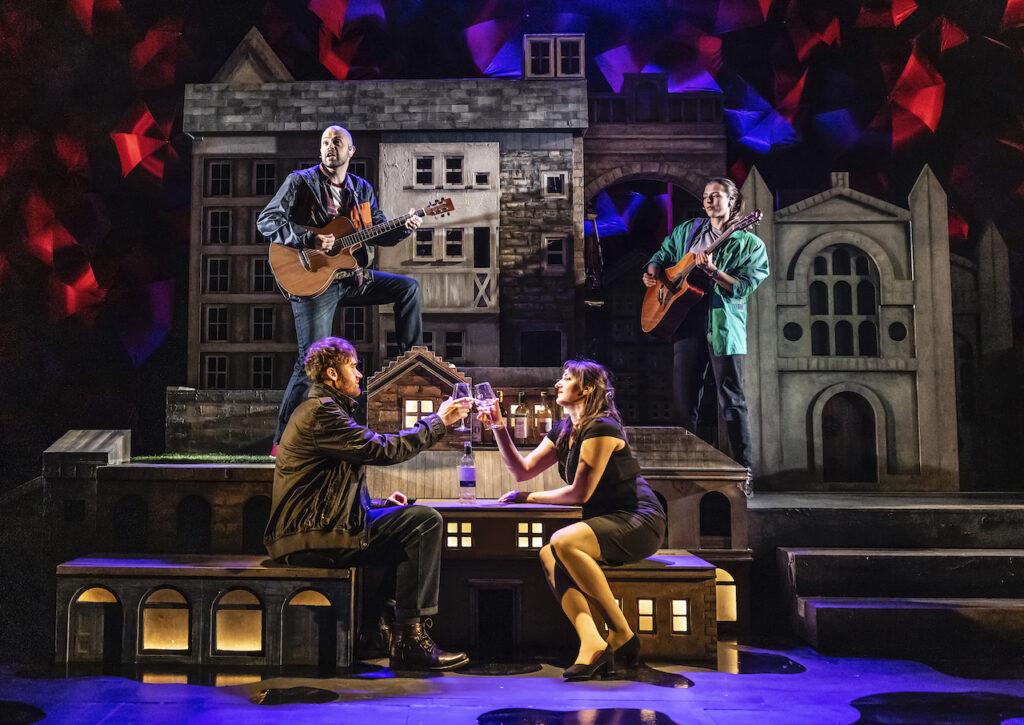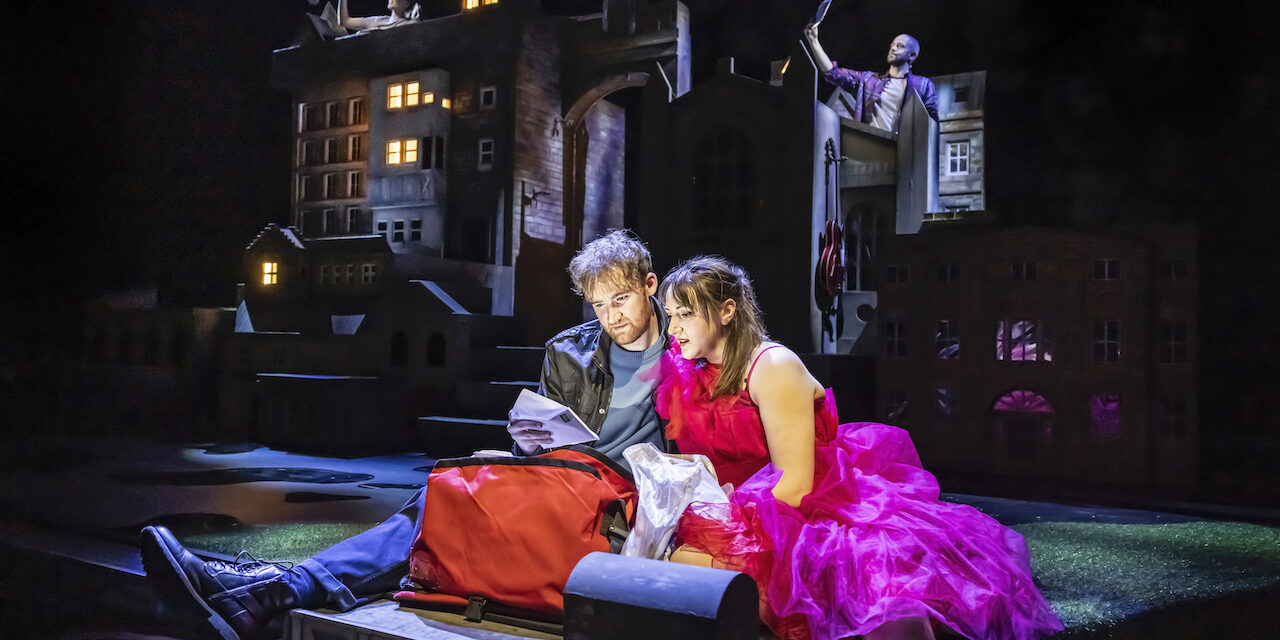
22 May – 22 June
Midsummer first arrived on stage in 2008. Written by David Greig in collaboration with Gordon McIntyre, who provided the music, it is described simply as “a play with songs”. A riposte to the proliferation of romantic comedies which flooded our cinemas during the 1990s and the first decade of this century (readers of a certain age will very likely remember Four Weddings and a Funeral, Notting Hill, Love Actually etc) the play sets out to present a grittier, more realistic portrayal of love and relationships, or what Ryan McBryde, director of this revival, terms “an antidote to twee and saccharine rom-coms”.
The show debuted as part of the Edinburgh Fringe that year: it is easy to see why it worked. Initially a shorter one-act play, Midsummer has since been expanded to tell an engaging, quirky and at times rather surreal story of two lonely, flawed and slightly dysfunctional 35 year-olds who meet at a wine bar in Edinburgh (naturally) on the longest day of the year. A seemingly doomed, awkward and rather predictable one-night-stand gradually develops into something more over the course of a chaotic, hedonistic weekend in which all manner of desires are satisfied – Greig gives McBryde free rein to use his imagination here as the protagonists indulge in a wild and drink-fuelled 48 hours, funded by a carrier bag full of ill-gotten gains.
A talented cast of four brings no shortage of skill and energy to this performance. Alongside Bob (Ross Carswell) and Helena (Karen Young), two narrators help to stitch the narrative together and provide further insights into the psyches and personalities of the two leads. But Will Arundell and Laura Andresen Guimaraes also showcase their multi-roling skills as an additional cast of minor characters. All of the performers are accomplished actor-musicians, with Arundell and particularly Guimaraes switching skilfully between a range of instruments.
The ingredients for a great show are all here: Libby Todd’s beautiful set is a scaled model village of Scotland’s capital, but one which has great versatility to allow buildings to slide around the stage, or to conceal hidden props, or even rooms. The lighting and projection is thoughtfully done and the production deploys what must be a significant budget to very good effect with some clever and impressive touches.
And yet Midsummer does not quite add up to the sum of its impressive component parts. The chemistry does not come naturally for the two leads, the songs on occasion feel very much bolted on rather than being an integral part of the narrative, the over-reliance on profanities jars after a while given the show’s presumably widespread intended audience, and despite the best efforts and endeavours of this quartet, the show lacks fluidity and coherence at times. In trying to present a deliberately more edgy and realistic depiction of human relationships and their complexities, the play ultimately embraces the more romantic and sentimental ending which you sense it initially sought to avoid: the final lines might well have been penned by Richard Curtis himself. The play’s strapline “No matter how stuck you feel, change is possible” feels rather clunky, and is not helped either by a tenuous and recurring pun involving a parking meter.
Nonetheless, there is much to enjoy about Midsummer, and it is hard not to be impressed by the show’s energetic and inventive take on the rom-com genre, not to mention a talented and enthusiastic cast.
★★★☆☆ Tony Clarke 22 May 2024
Photo credit: Pamela Raith


